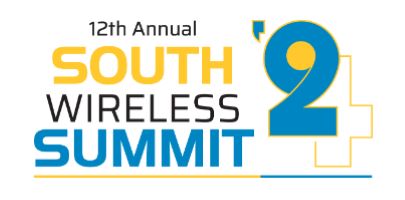South Wireless Summit 2024
Towers remain the best business ever, according to speakers on the Tower Panel, at yesterday’s South Wireless Summit in Nashville, but headwinds are requiring tower companies to be more creative. Neil Boyer, COO at Connectivity Wireless Solutions, moderated the panel.
With the increase in interest rates, buyers are becoming more discerning when they consider purchasing tower assets as to how much they will pay, according to Bob Paige, Executive Vice President of Mergers & Acquisitions and Corporate Development Vertical Bridge.
“The markets changed dramatically over the last couple of years, with higher interest rates impacting M&A, which is so capital-intensive ” he said. Asset owners who were waiting for interest rates to come back down are now “capitulating” and putting their towers up for sale, he added.
The biggest issue that tower companies face is higher interest rates and a scarcity of assets, according to Ed Farscht, CEO at Diamond Communications. Valuations have not gone down as far as he thought they would either, he added.
On top of that, the industry is going through a slow period in terms of lease up, making it more difficult to be cash flow neutral, according to Farscht. With the pressure higher interest rates have put on the tower business model, tower companies have to be more careful.
“While a great industry, the tower market is more mature today,” he said. “Paying certain prices for assets at certain yields, you have to be more careful because there’s less margin for error with high interest rates.” Farscht predicted 12-18 more months of slow growth for the tower industry.
The panel spoke of the uncertainty surrounding the buildout of DISH Wireless. Everest Infrastructure has enjoyed a strong relationship with DISH Wireless, according to Chris Davis, Chief Development Officer at Everest Infrastructure, who said he remains committed to helping it become the fourth operator. With that said, the news out of the carrier over the last several months has been “concerning.”
“They’re in a position now where they’ve got to raise billions of dollars in capital in a limited amount of time,” Davis said. “They need to also start showing some subscriber growth to really justify their position and solidify their ability in the marketplace to continue to raise capital. It’s really hard to see how just an individual investor or group of investors would help. It really looks like it needs to be a strategic partner. And it looks like it really needs to happen fast.”
Everest Infrastructure uses a consortium bid approach to buying towers, which is similar to multiple private equity firms pursuing an individual asset.
“We have been successful in showing the seller that ultimately our transaction structure approach is superior to the other bidders,” Davis. “With the number of people showing up at auction, multiples and pricing, I think you are going to see more of these joint bids.”
Yannis Macheras, CEO at Harmoni Towers, spoke about the importance of partnerships for the tower company across the board. These partnerships include funders, carriers, landlords, and the supply chain.
“We want long-term, sustainable partners in a robust ecosystem to be successful ourselves,” Macheras said. “Tower companies are the masters of partnership. It’s what we do.”
Panel members agreed that the health of the carriers is one of the important tailwinds aiding the tower industry. “You’ve got investment grade tenants, mission critical assets, and a robust market for them to acquire your assets,” Paige said. “There continue to be demands on their network that require them to continue to need more of your assets. The investment community recognizes that as well.”
By J. Sharpe Smith, Inside Towers Technology Editor





Reader Interactions